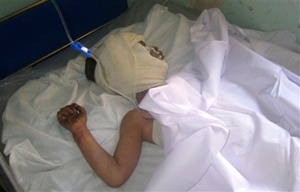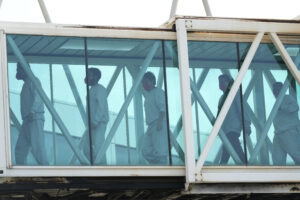The Costs of War
Ever wondered how the U.S. and Britain deal with civilian deaths in Afghanistan? For every confirmed civilian death, payouts -- from $3,000 to $5,000 -- are awarded to families and communities.
Ever wondered how the U.S. and Britain deal with civilian deaths in Afghanistan? For every confirmed civilian death, payouts — from $3,000 to $5,000 — are awarded to families and communities.
The amount given by Britain fell considerably over the past year, from almost $15,000 to a little bit more than $4,500. The U.S. shells out only a little over $3,000. –JCL
Dig, Root, GrowThe Guardian:
Twenty compensation claims relating to the killing of innocent Afghan civilians during operations by the UK armed forces are being investigated by the Ministry of Defence.
In the past, Britain has paid an average of £7,300 for every civilian death in war, although the last figures available, for the year ending April 2009, show that figure had fallen to £2,900.
The issue of compensation for civilian casualties has moved to the top of the political agenda as Nato commanders place an increasing emphasis on securing the support of the Afghan population. Officials are already negotiating to establish a standard system of compensation payments among member states operating in Afghanistan.
This year, we’re all on shaky ground, and the need for independent journalism has never been greater. A new administration is openly attacking free press — and the stakes couldn’t be higher.
Your support is more than a donation. It helps us dig deeper into hidden truths, root out corruption and misinformation, and grow an informed, resilient community.
Independent journalism like Truthdig doesn't just report the news — it helps cultivate a better future.
Your tax-deductible gift powers fearless reporting and uncompromising analysis. Together, we can protect democracy and expose the stories that must be told.
This spring, stand with our journalists.
Dig. Root. Grow. Cultivate a better future.
Donate today.







You need to be a supporter to comment.
There are currently no responses to this article.
Be the first to respond.